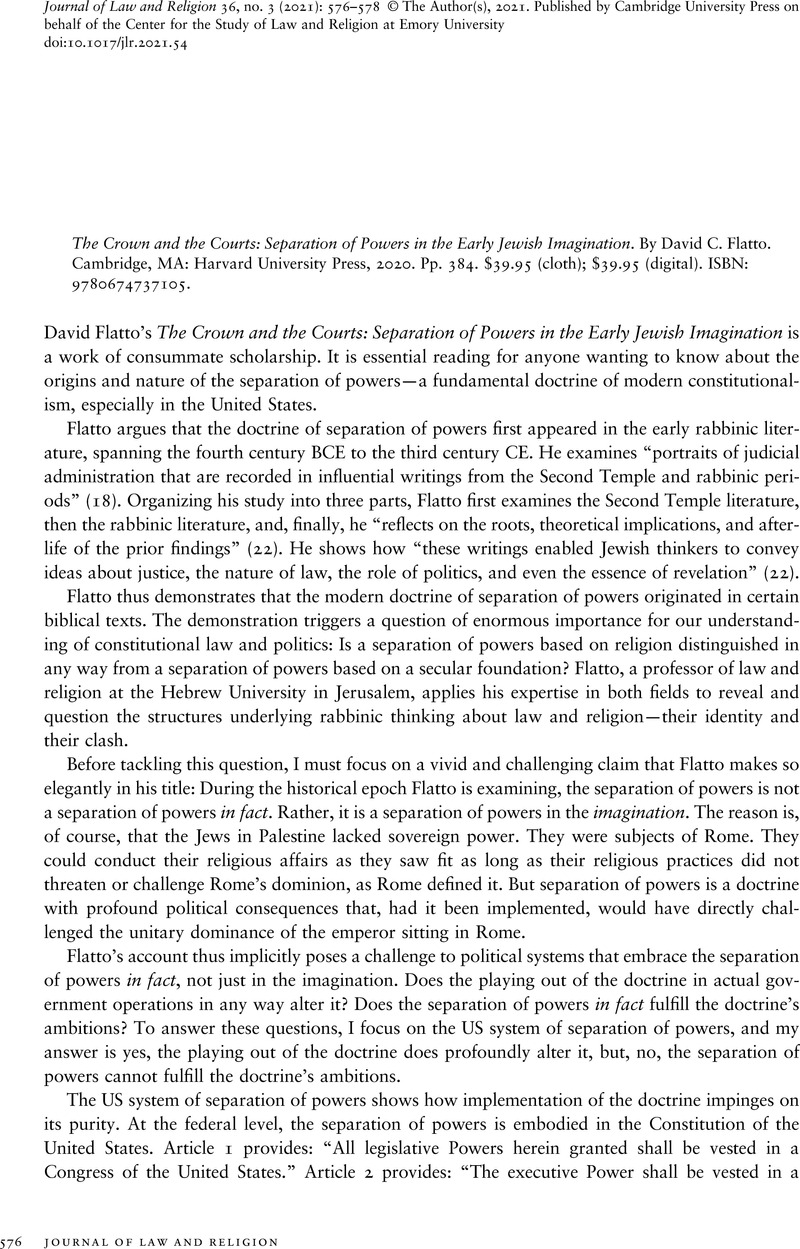No CrossRef data available.
Published online by Cambridge University Press: 24 September 2021

1 By the President of the United States of America: A Proclamation, January 1, 1863, Series: Presidential Proclamations, 1791–2016, Record Group 11: General Records of the United States Government, 1778–2006, National Archives. John Yoo has persuasively argued that Lincoln depended on his constitutional authority in issuing the Proclamation, and that Lincoln's dependence explains the Proclamation's careful boundaries: “He did not free any slaves in the loyal states, nor did he seek to remake the economic and political order of Southern society. Lincoln never claimed a broad right to end slavery. Rather, the Emancipation Proclamation was an exercise of the president's war power to undertake measures necessary to defeat the enemy.” Yoo, John, “Unitary, Executive, or Both?,” University of Chicago Law Review 76, no. 4 (2009): 1935–2018Google Scholar, at 2013.
2 See, for example, the First Confiscation Act of August 6, 1861, 12 Stat. 319, which negated owners’ claims to escaped slaves whose labor had been used on behalf of the Confederacy. Of course, the states of the Confederacy were in rebellion when President Lincoln issued the Proclamation, and Lincoln cited that rebellion in the text of the Proclamation to justify its issuance as an exercise of his powers as commander-in-chief.
3 Of course, what one means by the term god is a highly controverted and complex matter, varying from religion to religion, from culture to culture and deeply rooted in a vast and labyrinthine history. For example, in Hebrew there is no single word equivalent to the English word God. Rather, as in Islam, there are multiple names for (meaning “attributes of”) this single, ineffable concept. For example, the term YHWH, often called the Tetragrammaton (four letters) in English, and commonly read or spoken as Yahweh, is made from the first letters of four words often used in the Hebrew Bible to describe God—the letters yodh, he, waw, he—for the words meaning that which is, was, and will be or, compactly put, existence.